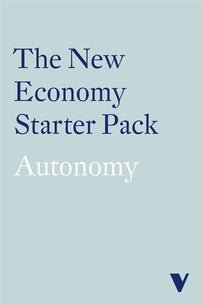A Shorter Working Week
The next fight laid before workers of the 21st century is to demand a further expansion of freedom in the form of a four-day working week.

The Monday to Friday working week we inhabit today is a social and historical construct. Whilst it might appear as a ‘natural’ configuration of time, the reality is that the 37 hour working week, and the weekend, are the result of labour movements in the 19th and 20th centuries reclaiming and repurposing life beyond the toil of the sixteen hour working day and six day working week. The next fight laid before workers of the 21st century is to demand a further expansion of freedom in the form of a four-day working week.
A four-day week helps solve a number of important economic and social issues today. Firstly, it would greatly improve the problem of overwork that we have in societies. Across the Western world (and beyond it) work-related stress, anxiety and exhaustion are seriously damaging the lives of populations, not to mention holding back our economic performance. With more time to recover and recuperate, workers will perform better, will enjoy their work more and will inevitably take less sick leave. Therefore, worker productivity relies not just on the sheer number of hours put in, but on the wellbeing, fatigue levels and overall health of the worker. A universal approach that reduces the labour time we deem to be socially necessary, will help in tackling the chronic levels of work-related illnesses witnessed throughout economies across the world today.
A shorter full-time week will also help mitigate the potential threat of automation technologies. With driverless cars coming onto the market, software bots taking admin work away from white-collar workers and advanced AI set to impact many sectors, we need bold solutions to make sure that our near-future labour market also spreads the benefits of these technologies to everyone. A shorter working week makes sense in the ‘second machine age’: it is a simple but progressive way of making machines do the hard or routine work, and letting humans have more time for themselves. These new technologies are of course ‘both a promise and a threat’. In the context of the shorter working week, automation holds the promise – as it always has done – of reducing work time, thereby opening up the possibility of the maximisation of autonomous time for individuals. However, this link between automation and freedom cannot and will not be facilitated without adequate policy intervention. The past century has shown us that automation technologies have more often than not been introduced by employers as a way of simply maximising productivity without sharing the surplus time and/or profits with employees. This trend will continue unless a practical and enforced link between automation and free time is constructed.
Shortening working hours across the economy can also, in turn, reduce our carbon footprint – which is an urgent necessity if we are to avoid climate catastrophe. Longer working hours correlate strongly with higher carbon emissions – due to mass commuting and the use of carbon-intensive plastic goods that come with a work-centred lifestyle (e.g. bottled water and microwave meals). The rapid pace at which climate breakdown is occurring requires the left to put forward robust political-economic solutions and a shorter working week is emerging as an important policy in this regard. For example, in their comprehensive plan for a just transition, The Green New Deal For Europe advocate the EU implementing a four-day week as part of a sustainable post-neoliberal economy.
Reducing the working week would also help to improve gender equality. In many countries, women tend to work in part-time roles more than men – often because they are the primary carer of the children of the household. A four-day week, with no loss in pay, would mean that the new full-time week becomes more part-time, freeing up space for men to do more of the childcare and housework during the week, but also raising the hourly wage for those women already in these part-time roles.
Providing the material time for care needs to be met is an essential component in which a genuine new economy of care can emerge. For this to happen, our conception of progress must proceed from the recognition that reproductive labour is the primary activity upon which an economy is built and sustained, whilst simultaneously challenging and overcoming the ways in which this form of labour is naturalised as the domain of women. A shorter working week could be a powerful step in reducing the amount of socially necessary unwaged labour carried out at present, giving the space necessary to challenge its future organisation and distribution. Above all, a shorter working week would give us more time for ourselves, our friends, families and our communities: freedom is a core value in our societies, and the expansion of free time is a condition for it.
Critics of a four-day week argue that in a globalised economy a four-day working week will make the UK economy uncompetitive and, in turn, make us all collectively poorer. In addition, employers argue that certain industries simply won’t be able to adapt or operate in such a reduced time frame. Whilst we must listen and customise shorter working week practices to fit all sectors, we must also acknowledge that many of the arguments put forward in opposition to the four-day week were the same as those championed by employers arguing against a five-day week at the start of the 20th century.
We need to reclaim the idea that the time and space that work occupies in our lives is a political choice rather than an economic necessity. A four-day-week without a loss in pay can become the practical cornerstone in our definition of what freedom means in the 21st century.
– Kyle Lewis is Co-Director of Autonomy and co-author of Overtime: Why We Need Shorter Working Weeks (Verso, 2020). The essay above is taken from The New Economy Starter Pack: a FREE ebook, developed in conjunction with Autonomy, outlining the new and transformative economic agenda of the left. Read by clicking below or here.
[book-strip index="1" style="buy"]Neoliberalism is dying, but its replacement is not yet born. The direction of politics over the coming years is not certain, and the left will have to win not only the political fight, but also the battle of ideas.
In this special Verso Report, developed in conjunction with Autonomy, some of the most important left-wing economists and policy makers at work today outline the new economic ideas that will shape the direction of the left in the years to come. From Labour’s “ownership agenda”, moving beyond neoliberalism’s fixation on private ownership towards collective ownership of society’s productive assets, and the position of unions in society, to plans to reduce the time we all spend at work, and new ecological imperatives for the entire economy, The New Economy Starter Pack is a vital resource for those who want a wide-ranging introduction to the new and transformative economic agenda of the left.
Contributors include: James Meadway, Kyle Lewis, Alice Martin, Mathew Lawrence, Cat Hobbs, Will Stronge, Dave Ward, Luke Hildyard, Howard Reed, Laurie Laybourn-Langton, Julian Siravo, and Grace Blakeley.
